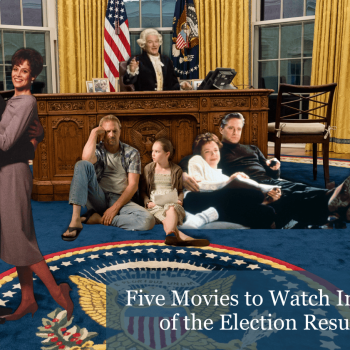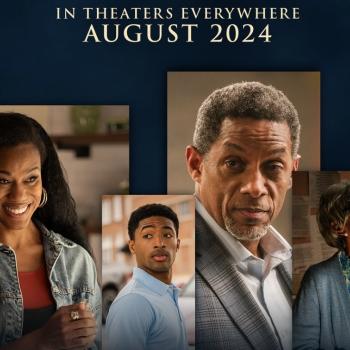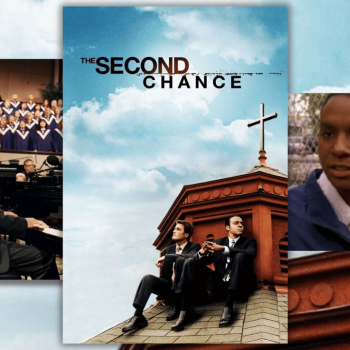
“Rich died.”
I’ll never forget where I was when Bob Lepine called and told me Rich Mullins had died in a car wreck. Sure, I remember where I was when the Space Shuttle exploded and when the first plane hit the Twin Towers, but this is the cultural loss that rocked my world most.
At first, Rich Mullins was the songwriter behind “(Sing Your) Praise to the Lord,” “Doubly Good to You,” and “Love of Another Kind” recorded by the cornerstone of my personal musical journey, Amy Grant.
With the release of his self-titled debut in 1986, Rich began a journey where he became the singer-songwriter I leaned on the most, whose music filled more moments of personal struggle, and whose lyrics painted pictures of places and emotions I couldn’t dream of seeing on my own.
Someone once asked me why I remember Rich’s death more than his birthday. Probably because his death caused me to absorb his music deeper into my bones.
If you are not familiar with his music—or worse, are only familiar with “Awesome God” or “Step by Step”—listen to these songs. I’ve compiled a list of songs that will introduce you to Rich and the essence of who he was. I would prefer you go on a long drive and let these songs wash over you, but even if you just skim them or put them on in the background while you work or play, I think they will still have an impact.
These are not necessarily the hits or the essential songs. These are the ones (but not all) where I hear Rich’s heart the most.
Re-Introducing Rich Mullins
“Praise to the Lord”
My friend John Alford sent me a cassette from college when he met someone who owned the LP of Rich’s college band, Zion. I’ll never forget sitting down and hearing the song they way the writer intended it. Rich re-recorded it for his first compilation record, “Songs,” but in my opinion, the original is still the best.
“Elijah”
This song garnered the most attention from critics and music gatekeepers when his first album released. He re-recorded it for “Songs” and Gary Chapman recorded it on a tribute record following his death. I encourage you to listen to all three in order. You’ll hear Rich’s raw emotion in the original and a depth of living life in his remake. To my ears, however, Rich is singing for himself in both versions. Of course he is. However, when I heard Gary Chapman’s version, I felt Gary was singing for me (and all of us). Much is made of this song and Rich’s jeep crash. I bring up the connection to say this: the song is much deeper than that.
“Save Me”
The final track on his first record haunts me. Oh that we would all pray a prayer like this. I’ve made lists in journals over the years, not as poetically, of course, of the things I would sing about if I prayed this prayer.
“Be With You”
You’ve probably heard someone talk about how we have such unfettered access to Abba Father that we can crash into the throne room and crawl up in His lap. He will care for us, listen to us, and hold us closely. I’ve always wrestled with that imagery. I see myself coming shyly near the Lord of the Universe and singing this song.
“If I Stand”
“There’s more that rises in the morning than the sun” and there’s more to this song than meets the ears. Listen to this one a few times. I believe your faith will grow and your heart will swell.
“First Family”
My family was nothing like Rich’s yet if I want to remember my parents, their faces, their voices, their laughs, and their passions, all I have to do is listen to this song and I am transported. As a song, I hear Rich having to hold back the rawness he wants to express.
“Boy Like Me/Man Like You”
I call this Rich’s other Christmas song (besides “You Gotta Get Up”). This song pushed me to think about Jesus in a different light without subtracting one iota of his majesty and glory.
“The Maker of Noses”
For a man in his early 20s who wanted to conquer the world, this song checked me harder than a 6’6″ hockey defender. I probably share this song more on social media than any other. How I wish they had given Rich a bigger budget to produce this record more deeply. It sounds a little dated now.
“Growing Young”
Do you have a crying song? One that you put on when you need to allow yourself to be sad and feel the sadness? Amy Grant’s “Arms of Love” served this role for years and I still pull it out from time to time, but as I’ve grown older, this song has become the first one I reach for. Listen very carefully to the chorus.
“The Color Green”
The album, “A Liturgy, a Legacy, and a Ragamuffin Band” is a master class in songwriting. It is also a master class in community. Each one of us is encouraged by the whole of scripture to live life with those we learn from, those we can be fellow travelers with, and those we can offer wisdom to (and yes, sometimes, a single person can serve all three roles in our lives at the same time). On this album, Rich surrounded himself with his fellow ragamuffins. These were men that encouraged and taught Rich, men that lived life with him, and even a couple of proteges that Rich invited into the fellowship so they could grow.
“Liturgy” is the finest record produced thus far in the so-called Contemporary Christian Music genre. I urge you to listen to it in its entirety in one sitting from start to finish. It is an album in the truest sense. It tells a story and paints a city-sized mural with the intricacies of the lyrics, instrumentation, and rhythm. I am tempted to list every song on this album and extol their virtues and excellence. Instead, I’ll allow you to dip your toes in their waters and will gladly listen to your tale of then diving in the deep end.
“The Color Green” will knock your socks off. If you’ve never heard it and listen today and you aren’t stopped cold to listen to the entire thing, do yourself a favor and close your office door, pull over to the side of the road, or stop what you’re doing and listen. God’s creation was given to us to show us God (Psalm 19, Colossians 1, etc.) This song is a gift that shows us God’s creation, and thus God Himself.
“Let Mercy Lead”
Written for the newborn child of one of his dearest friends and co-songwriters, this song encapsulates the advice Rich and Beaker wanted to give Aiden. Rich quipped that Beaker was never satisfied, then said, “but fortunately he’s going to be around to tell Aiden other things.” I think the song is a great challenge to all of us at any stage in life.
“Nothing is Beyond You”
I love Psalm 139. Of all of the musical allusions to that Psalm, this one rattles me the most. Rich intended to record this song but died before he could go into the studio. He recorded a piano and vocal demo to send to the label and others to demonstrate the power of the song. After his death, friends and industry leaders released “The Jesus Record,” a 2-CD collection featuring Rich’s vocal demos on one and fully produced versions sung by his friends on the other. Amy Grant records this song. I can’t decide—and I’ve spent way too much time thinking about it—which version I like better. Listen to both.
“The Jesus Record” is also worth listening to every song, in order, in one sitting.
“Heaven is Waiting”
Rich loved St. Francis of Assisi. His music and legacy is protected by an organization called “The Kid Brothers of St. Frank.” If you know the truth behind Francis’ story, you’ll see many similarities between their biographies. No wonder he was attracted. He wrote a musical putting the life and struggles of Francis in the Old American West called “Canticle of the Plains.” The music departs from his typical style, but his trademark poetic songwriting and mood creating breathes through the soundtrack. This song found it’s way onto the Tribute Record called, “Bellsburg” recorded in a house outside of Nashville where Rich used to live.
“Mary Picked the Roses”
Rich Mullins’ estate discovered lyrics to this song after his death. They chose Andrew Peterson to finish it and record it. I add this song to the list because Andrew is still living and writing some of the greatest music today but you will hear little of it on the radio. If Rich’s music moves you, listen to Andrew, too.
Rich’s Life and Our Lives
Rich Mullins was far from perfect. Some would say he’s not even a role model. We shouldn’t listen to his music. We shouldn’t bring more attention to him. Rich smoked, sometimes drank to excess, wrestled with fear, struggled to deal with his family of origin and bore those scars for years, and struggled with other besetting sins. (The bio pic about his life, ‘Ragamuffin,’ pulls back the curtain some.)
Rich came to a place, as you can hear in the song “Creed,” many of the songs in the list above, and throughout “The Jesus Record” to say like the apostle Peter, “Lord, to whom shall we go? You have the words of eternal life. We have come to believe and to know that you are the Holy One of God.” His music is powerful, convicting, memorable, and worthy of singing/sharing because of his wrestling, not in spite of it. He clung to the Savior of the World.
He didn’t sing songs full of “me theology.” He wrote, recorded, and performed music that glorified the transcendent God of the Universe who, in His mercy and eternal plan, loves the ragamuffin, came to seek and save the lost, left the 99 for the one, and prayed, “Father forgive them. They know not what they do.” in His darkest moment. In a world full of music about the humanity of Jesus and how His sacrifice helps us here on earth, Rich created music that lifted eyes and hearts to the Cross, the empty tomb, and to the throne where Jesus will “come to judge the living and the dead.”
A Challenge for the Days to Come
Let me challenge you to gather some folks you know this weekend. Share a meal, beverages of choice, or a campfire and listen to Rich’s music together. If you find yourself making music yourselves or talking about deep subjects, turn off the music. Keep talking. Go deep. Linger together. That’s okay. I think Rich would’ve wanted it that way.













